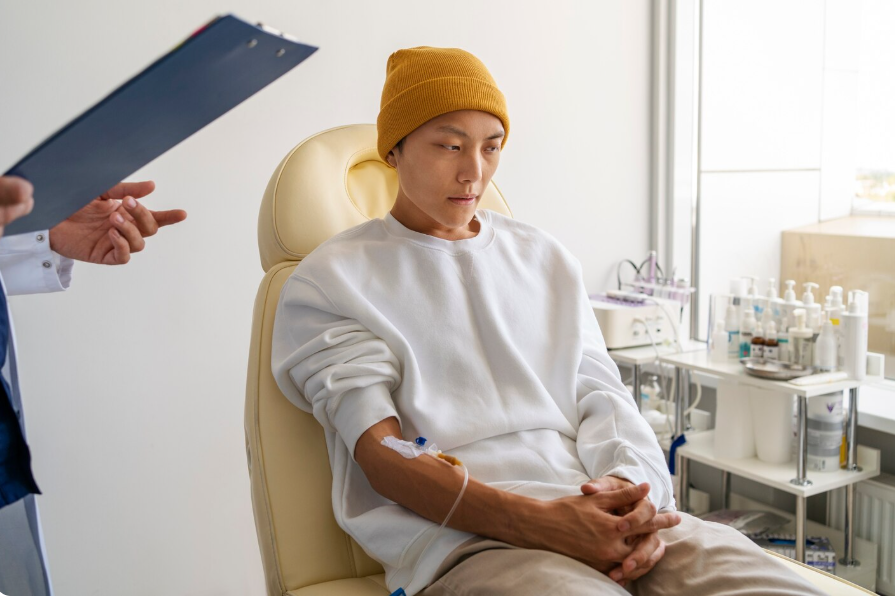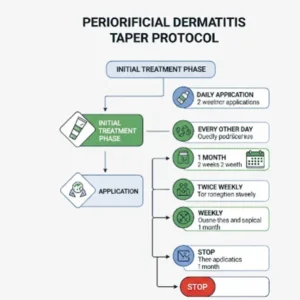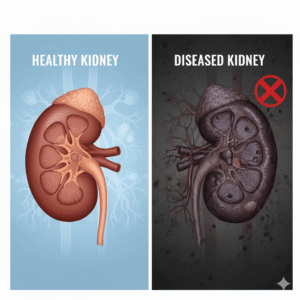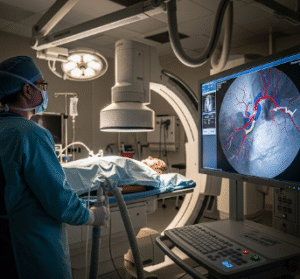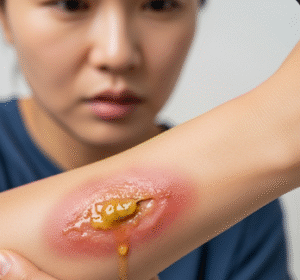Overview
Colorectal cancer is a malignancy that affects the colon or rectum. It is one of the most common cancers in Korea, particularly among adults over 50. Early detection and treatment significantly improve outcomes. Korean hospitals and oncology centers offer advanced screening, surgical, and therapeutic options for effective management of colorectal cancer.
What is Colorectal Cancer?
Colorectal cancer begins when abnormal cells in the lining of the colon or rectum grow uncontrollably, forming polyps that can become cancerous over time. It can develop gradually and may remain asymptomatic in early stages, which makes regular screening important.
Symptoms
- Changes in bowel habits (diarrhea, constipation, or narrowing of stools)
- Blood in stool or rectal bleeding
- Abdominal discomfort, cramping, or pain
- Unexplained weight loss
- Fatigue or weakness due to anemia
- Feeling of incomplete bowel evacuation
Causes
- Accumulation of genetic mutations in colon or rectal cells
- Formation of adenomatous polyps that become cancerous
- Chronic inflammation of the colon (e.g., ulcerative colitis or Crohn’s disease)
- Lifestyle factors such as high-fat diet, low fiber intake, smoking, and alcohol use
Risk Factors
- Age above 50 years
- Family history of colorectal cancer or polyps
- Personal history of inflammatory bowel disease
- Genetic syndromes (e.g., Lynch syndrome, familial adenomatous polyposis)
- Sedentary lifestyle and obesity
- Poor diet with high red or processed meat intake
- Smoking and heavy alcohol consumption
Diagnosis
- Colonoscopy: Gold standard for detection and polyp removal
- Fecal occult blood test (FOBT) or fecal immunochemical test (FIT)
- CT colonography or virtual colonoscopy
- Biopsy of suspicious lesions during colonoscopy
- Blood tests including CEA (carcinoembryonic antigen) levels
Prevention
- Regular colorectal cancer screening starting at age 45–50 (earlier if high-risk)
- High-fiber, low-fat diet rich in fruits and vegetables
- Maintain healthy weight and regular physical activity
- Avoid smoking and limit alcohol consumption
- Prompt treatment of inflammatory bowel disease
- Genetic counseling for high-risk families
Treatment Options in Korea
Korean oncology centers offer comprehensive colorectal cancer care:
- Surgical Treatment
- Laparoscopic or robotic-assisted colectomy
- Polypectomy for early-stage lesions
- Resection with lymph node removal for localized cancer
- Medical Treatment
- Chemotherapy for advanced or metastatic disease
- Targeted therapy and immunotherapy for selected patients
- Radiation Therapy
- Pre- or post-operative radiotherapy for rectal cancer
- Follow-up and Supportive Care
- Regular imaging and colonoscopy for recurrence monitoring
- Nutritional counseling and rehabilitation programs
- Psychological support and patient education

